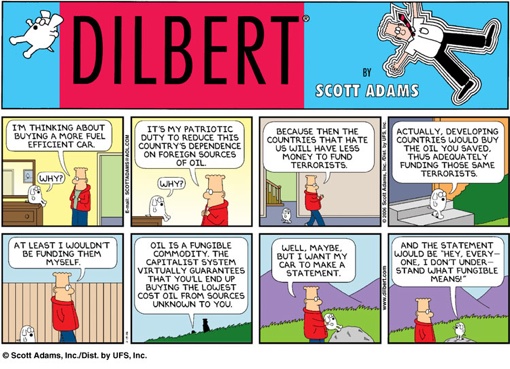On Friday, the Utah state house of representatives passed a bill creating a statewide school voucher program. The bill is expected to pass the state senate and be signed by the governor. The program makes a voucher available to every public school student in Utah, which the student can use toward tuition at a private school if they so choose. The value of the voucher is between $500 and $3,000 annually based on family income, and there are relatively few requirements that the private schools must meet. (Utah government schools spend about $3,500 annually per student.) More specifics are here.
I think this voucher program is a good thing. It goes at least some way toward addressing what I see as a significant distortion in the education market created by government schools.
Imagine for a moment that the government decided to make a car available to every citizen old enough to drive. The government provides only Ford Focuses, which retail for about $15,000 in the United States. I think one would see a couple of things happen to the automobile market. First, and most obvious, there would no longer be any cars on the market for less than $15,000, why buy a car worth less than the one you could get for “free”? Perhaps less obvious, I think that you would see almost no cars in the $15,000 to $40,000 range as well. Why would you pay the full $20,000 for a car that was only $5,000 better than the car you could get free? Put another way, the incremental value of the car would be only $5,000 while the incremental cost would be $20,000. I expect you would start to see a market for private cars only at a much higher price point, where the $15,000 lost opportunity cost was not as important. I also expect that you would see some specialized cars for those who really needed something other than a Focus. Though, you would almost certainly see a lot of people making do with the Focus even if it wasn’t entirely appropriate.
The same thing happens with education. My eldest daughter is five-years-old and currently attends a government school in Arlington County, Virginia. Our county spends in the neighborhood of $5,000 annually per student and has very good schools compared to the national average. However, this system creates the same dilemma for me as the government car would create. If not for the government school, I might decide that I would prefer my daughter get $7,000 worth of education, but I’m faced with paying the full $7,000 for an incremental gain of only $2,000 in education. And, even if I was willing to pay the full $7,000, it is unlikely I would be able to find a $7,000 education. The government schools have pushed these options out of the market.
Even worse, government schools force all children into a single solution. Much like the carpenter with a Ford Focus covered with ladders and stuffed with tools, children who would be much better off with a different “vehicle” face a stiff incentive to fit into the solution provided.
I think vouchers are a good start to addressing this and other issues with “public” education. I hope Utah’s experiment proves successful, actually and politically.
[NOTE: A brief, unscientific survey of private schools in Arlington Co. shows that almost all schools are either significantly more expensive than public school, overtly connected to a religious denomination, or both. Interestingly, the number of schools available decreases significantly for higher grade levels, with only one private high school in the county. A number of these schools are also notoriously difficult to get into–stop and put your name on the waiting list on your way home from the hospital if you expect to get in.]
[Disclaimer: My dad has been a public school teacher and administrator in Utah for thirty-plus years.]




